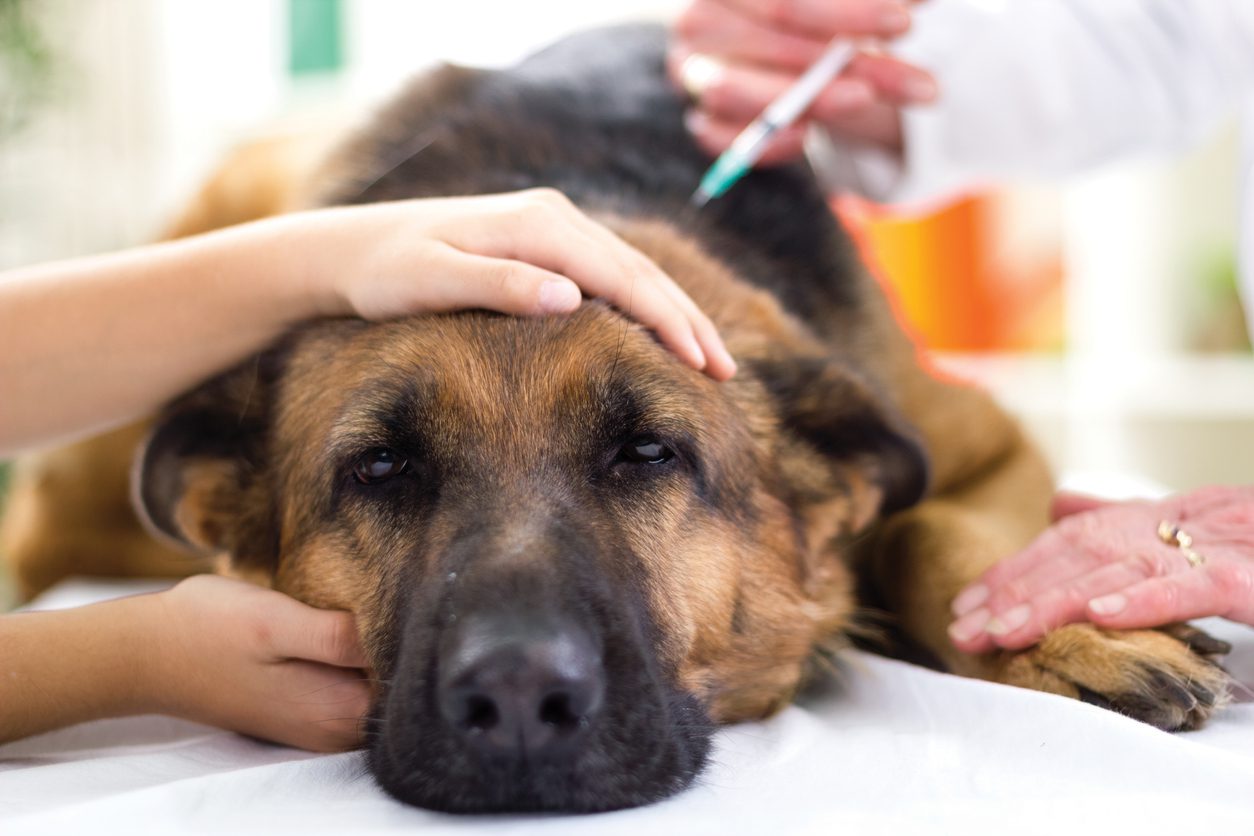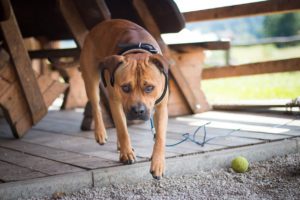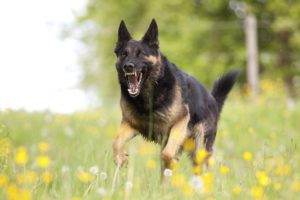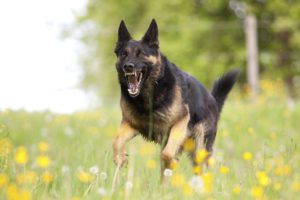Why is the Dog Rabies Vaccine Important in Dyer, IN?

The rabies vaccine is required by law for pet dogs. The reason for this is because rabies not only kills animals but it kills infected humans as well. In areas where more dogs are unvaccinated than vaccinated, rabies is rampant and killing humans and animals. It is a vital responsibility for dog owners to vaccinate their dogs against rabies to control such a terrible disease.

What is Rabies and Why is the Vaccine Important?
Rabies is a viral infection and is usually only transmitted through an animal’s bite. This could be a wild animal biting another animal such as your dog or your dog biting you when they’re infected. Rabies is a central nervous disease that primarily infects the neurons and is transmitted through a motor neuron, causing various symptoms in all species susceptible to it. Unfortunately, rabies is almost always fatal for both animals and humans once clinical signs begin to be noticeable.
What are the clinical symptoms of rabies in dogs?
The symptoms of rabies vary even within the same species. The main symptoms to watch out for when it comes to rabies in your dog are:
- Fever
- Paralysis or seeming paralysis of the limbs
- Difficulty swallowing
- Lack of balance
- Drooling
- Seizing
- Aggression
- Overreactions to lights and sounds

What are the symptoms of rabies in humans?
If you have a suspicion that you were bitten by an animal that could potentially be infected with rabies, it is critical to get to a hospital as soon as possible. You can be given a shot for a rabies bite to prevent infection if delivered in time. Even if you aren’t sure the animal that bit you carried rabies, it’s a good idea to go to the hospital anyway as a precaution because once it’s too late, there’s nothing doctors can do for you. The clinical symptoms of rabies in humans are:
- Headache
- Nausea or vomiting
- Fever
- Agitation or anxiety
- Confusion
- Overstimulation
It’s important to note that these symptoms must be associated with an animal bite to warrant concern about a rabies infection. Otherwise, these symptoms may be caused by many other issues.
How to tell if a wild animal is rabid
If a wild animal ever bites you, whether it has rabies or not, it’s essential to have a medical professional examine the bite wound for infection. There are a few ways to determine if a wild animal has rabies, but some wild animals show almost no symptoms, especially in what is likely to be a short encounter when biting you. The main worry is when wild animals are more willing to approach humans or other animals that they usually would be frightened of or run away from. This is a common sign of rabies in wild animals, a lack of fear or worry for self-preservation. Also, many rabid wild animals may drool or show signs of aggression or confusion when infected with rabies. If a wild animal displays any of these behaviors, there is a high chance it may be rabid.
How does a dog react to a rabies vaccine?
Some pet owners may worry about getting their dogs vaccinated due to the potential side effects of the rabies vaccine. Typically, side effects are minimal and resolve in just a few days. Your dog may be a bit sluggish and even run a slight fever after being vaccinated and may not even eat as much a before. These side effects are much milder than the rabies infection itself and are not anything to worry about. Occasionally a dog may be allergic to the vaccine. In most veterinary clinics, a dog is monitored when receiving a vaccine for a possible allergic reaction which would be treated immediately. The response would be noted in the dog’s file, and in the future extra care would be taken when the dog receives boosters by using drugs such as antihistamines to prevent any further reactions. The effects of the vaccine are not severe enough to consider not getting your dog vaccinated against rabies for this reason.
The rabies vaccine for dogs is the most important vaccine a dog can receive.
Dogs are the most common animal to spread rabies to humans. It’s much more likely for another dog or wild animal to bite your dog than bite you. Dogs account for almost all rabies transmission to humans. There is no other way to prevent the spread of rabies than to vaccinate dogs against this very fatal disease. An argument against the rabies vaccine does not stand up against evidence in any way, shape, or form. Not only does the vaccine protect your dog, but it also protects you. Because of the seriousness of this disease, it is required by law to have dogs vaccinated against rabies or else face legal action.

So why exactly is the dog rabies vaccine important? This vaccine protects your dog, you, your family, the dogs, other animals your dog encounters, and your community. Rabies is a very serious and deadly virus. There are absolutely no reasons you can come up with not to vaccinate your dog for rabies. Almost anyone infected with rabies long enough to show symptoms will die, and all it takes to prevent this is a simple vaccine. It’s the responsibility of dog owners to vaccinate their dogs, and there’s no excuse not to do so. Please call our vet to schedule an vaccination appointment today at (219) 865- 3737.
Share This Post
Recent Posts
About Dyer Animal Clinic
We are a place where pets and their people can feel at home. It's a place where wellness is maintained and supported from the time they’re newborns through their golden years.






